Average UK house prices in 2022 by city and region – that will be the topic of today’s article.
If you have any questions or want to invest, you can email me (advice@adamfayed.com) or use these contact options.
Introduction
First of all, it is worth noting the climate of Great Britain. Many consider permanent cloudiness a minus. However, a considerable number of people are impressed by such weather, since it is it that creates a special atmosphere. Moreover, there are also sunny days here. Severe frosts rarely occur here. The climate of England is mild, gentle, and favorable.
The nature of the country is simply amazing. It does not look like an “island”, but it has its own notorious “zest”. In the UK, there are a lot of parks, green spaces, nature reserves, and simply amazing ecology. Here you can meet birds and animals roaming freely in public places.

UK is a country that is famous for its high standard of living. It’s comfortable and safe here. You can live in peace, get an education and develop your own business. In the UK, the law is very respected and everyone tries to comply with the norms prescribed in it.
Real estate in the country is not cheap. In addition, there are a large number of old buildings on the market. However, it is worth saying that many are impressed by their originality and charm. In winter, you can warm yourself by the fireplace and get a lot of pleasure from the process. If you try, you will be able to find an affordable option.
The people here are polite, sociable, well-mannered, and friendly. They have a friendly smile and are always ready to help. It is clear that the difference in mentalities exists and this is far from a myth. However, you can always find colleagues of interest even in another country. Although it is not customary to have heart-to-heart conversations in the understanding of a European.
The UK is a country of great opportunity. Here, many achieve success and open up new perspectives for themselves. England has a lot of weight in the world community, so it is very honorable to be its citizen.
The UK is one of the most developed countries in Europe. It is not surprising that a British visa opens up a number of advantages and opportunities for immigrants. What are the privileges of permanent residence in this country?
Pros of living in the UK
- Standard of living. According to the ratings, the UK ranks 15th in the world in terms of the quality of life of the population. This indicates a developed transport system, a low level of crime and social security. This is probably why tourists who visited the country on a British visa note how cheerful and friendly the locals are.
- High salaries. Regardless of the structure in which the Englishman works, his salary will be significantly higher than that of many other Europeans. Doctors, brokers, company executives and lawyers earn the most. Each workplace is a guarantee of a high standard of living and social benefits. However, getting a job is a difficult task – every employer will carefully study your previous work experience. That is why before obtaining a visa to England, you need to take care of a good resume.
- Environment and infrastructure. Absolutely all cities of the Old World have a large number of parks. The abundance of trees and constant winds create a very favorable atmosphere. Even in the center of London, you want to breathe deeply. Long walks are also favored by clean and tidy streets, many playgrounds and squares.
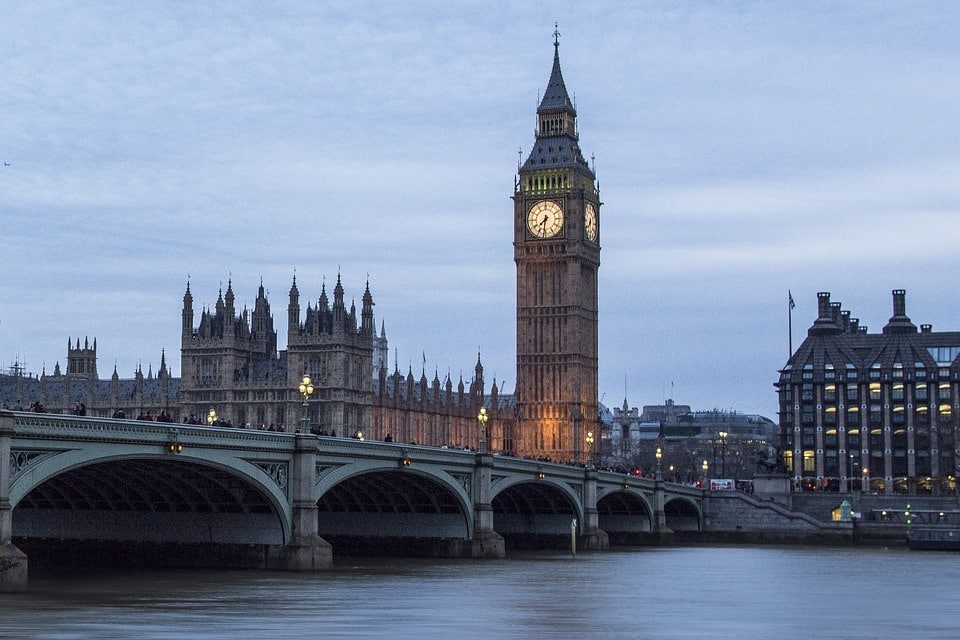
Cons of living in the UK
However, everywhere has its drawbacks. Whether you are planning to apply for a fiancé, student, or work visa to the UK, it pays to be prepared for all aspects of living in the country.
- Climate. Those who have applied for a visa and plan to move to the UK for a long time should prepare for the famous English fogs and rains. Not everyone will like to watch the cloudy sky for six months!
- High prices. Anyone who has been to England on a tourist visa can see how high prices are in the country. Accommodation, public transport, food, utilities will cost you several times more than in neighboring countries. So, you will have to spend from 3.1 to 6 pounds on a trip to the subway, depending on the time of the day and how to travel – using the Oyster card, 5 pounds; off-peak hours 3.1 pounds or a single ticket 6 pounds.
- Language. Of course, the English language is now ubiquitous. But even regular trips to Britain on a tourist visa will not give you the knowledge that the locals have. If you are going to move to England, you should be prepared for the difficult process of acclimatization. You have to start life from scratch: Make new friends, look for work and learn the culture of this beautiful country in practice.
- Great Britain is a country that attracts not only tourists, but also people who want to live in an atmosphere of stability and tranquility.
Buying a home in the UK in 2022
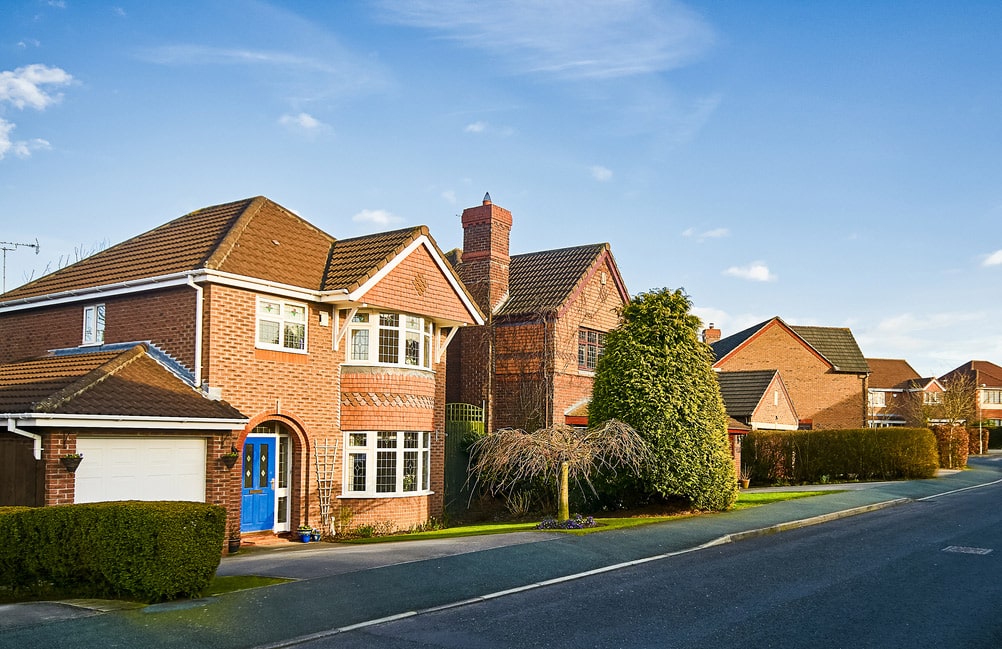
According to the latest statistics, 52.8% of families in the UK own their own home; 28.2% own a property outright, and 24.6% own property through a mortgage. This figure is lower than the EU average but higher than in European countries such as Germany, France, and Switzerland.
Homeownership in the UK grew in the late 20th century due to the right-to-buy scheme introduced in the 1980s, where residents of a municipality were given the option to buy their homes at a discount. The median age of first-time buyers has increased in recent years, largely due to rising home prices. The number of young homeowners has more than halved in the past 20 years, according to the Institute for Fiscal Research.
In the UK, there are no legal restrictions on the purchase of property by expats. Foreigners and non-residents can also get mortgages in the UK. However, those who have lived in the UK for less than two years and are unemployed may face stricter requirements and a larger deposit.
In this article we will get to know to the prices of houses in the UK by city and region, to make it easier for many of you to understand how much you can consider for buying a house.
Economic report
House prices in England rose by 8.9% in the year to April 2021, compared to 9.8% in March 2021. House prices in England rose in the same way as in the UK, by 8.9% in the year to April 2021. The Northeast grew the fastest. region with annual growth of 16.9% per year by April 2021. The lowest annual growth was in London, where prices rose 3.3% year-on-year to April 2021.
On a seasonally adjusted basis, average house prices in England fell by 1.9% between March and April 2021, compared with a 1.1% decline in the same period a year earlier (March and April 2020). Seasonally adjusted, average house prices in England fell by 2.2% between March and April 2021.
Comparing the preliminary volume estimate for February 2020 with the preliminary estimate for February 2021, transaction volume in England increased by 31.7%. UK transaction volume increased by 29.9% over the same period.
UK real estate transaction statistics published by HM Revenue & Customs (which vary in coverage but are more comprehensive for this period) report that seasonally adjusted transaction volume in England increased by 50.0% in the year to February 2021.
Across England, semi-detached homes posted the biggest increase of any property type, up 10.3% in the year to April 2021 to £256,000. The smallest annual change was in apartments and maisonettes, which rose by 4.7% in the year to April 2021 to £230,000.
As with other housing market indicators that typically fluctuate from month to month, it’s important not to place too much weight on a single month’s worth of house price data.
The UK’s most and least affordable cities
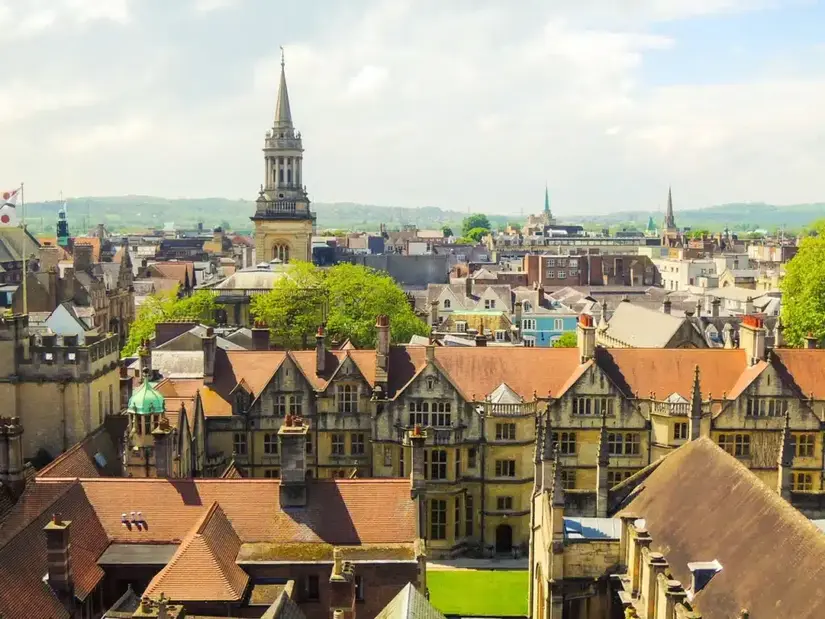
The average house price in UK cities has risen from £180,548 in 2013 to its highest level of £248,233 in 2018. By comparison, the city’s median annual income rose just 11% to £34,366 over the same period.
Oxford is the least accessible city in the UK. Home to the world’s highest-ranked university, Oxford has an average house price of £460,184, 12 times (12.6) the city’s median annual income of £36,430, making Oxford the least affordable city in the UK.
In seven cities, average house prices are 10 times the average annual income. In addition to Oxford, these are Chichester (11.5), Truro (11.1), Bath and Cambridge (all 10.3), Winchester (11.3), Greater London. The average for London hides significant differences across the capital, with central areas significantly less accessible than the average for Greater London.
The only cities outside of southern England and the East are Leicester (8.6), York (8.0), and Worcester (7.7).
Buying a home in UK cities remains challenging as average home prices outpace wage growth. However, the market is seeing a rise in new buyers, and homeowners continue to be attracted to cities across the UK despite rising prices. Over the past five years, more than half of northern cities have entered the top ten in the UK for rising house prices, while southern cities have dominated for a longer period.”
Top 20 Most Affordable Cities Outside Southern England
Stirling in Scotland, along with Londonderry, Northern Ireland, is the UK’s most affordable cities, with an average house price to income ratio of 4.4. Sterling has been ranked No.1 for the sixth year in a row.
Along with Londonderry, two other cities in Northern Ireland, Newry (4.5) and Belfast (5.0), rank 3rd and 6th respectively in the top 10 most accessible cities. Bradford (4.6) is named the most accessible city in England and Swansea, with almost 25,000 students, is the most accessible city in Wales (5.5).
The other cities in Northern England and Scotland are in the rest of the top 10 most accessible cities, and those are Lancaster (4.7), Aberdeen (5.0), Perth (5.1), Hereford (5.1), and Sunderland (5.1).
Winchester’s highest house price increase in a decade
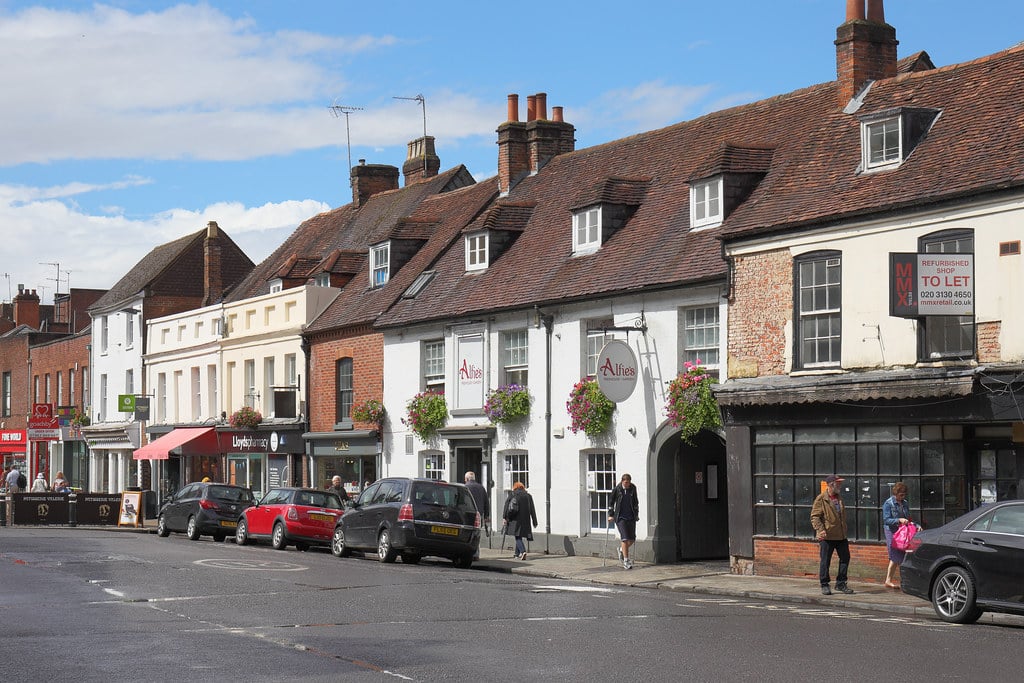
Winchester, the ancient capital of England and home to the legendary King Arthur’s Round Table, has recorded the biggest price increase of any city in the UK in the last decade, with a 93% increase from £281,224 in 2008 to £541,891 in 2018 compared to the UK cities average of 35%.
Chichester comes in second with a 76% increase, followed by Greater London (69%), Cambridge (66%), St Albans (64%), and Oxford (59%). Nine of the top 10 players since 2008 are in southern England, with the exception of Lichfield in the West Midlands and Cardiff in Wales (both 54%).
House prices in Chichester have risen to a record high in the past five years
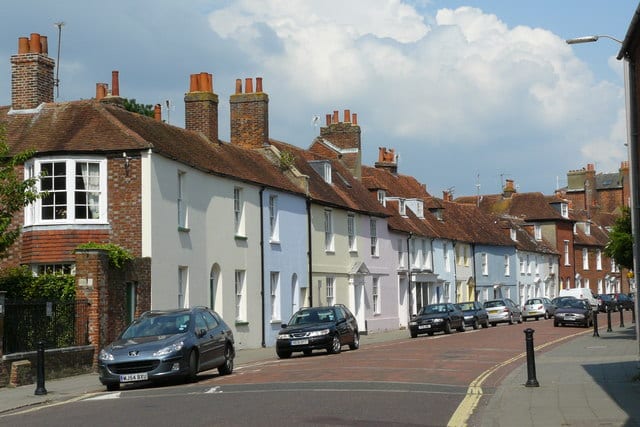
Over the past five years, Chichester has recorded the highest rise in house prices with a 62% rise from £277,654 in 2013 to £450,023 in 2018. Cambridge is second in terms of average house price growth (61%), followed by Newcastle. Tyne (56%), Eli (54%) and Litchfield (52%).
How to buy a house in the UK?
There are many types of property that can be bought in the UK; many who move there prefer to buy rather than rent. Prices vary widely across countries and regions, but mortgages in the UK are available to those who can afford them.
Homeownership in the UK
According to the latest statistics, 52.8% of families in the UK own their own home; 28.2% own a property outright, and 24.6% own property through a mortgage. This number is lower than the European countries’ average but is higher than in Germany, France, and Switzerland.
Homeownership in the UK grew in the late 20th century due to the right-to-buy scheme introduced in the 1980s, where residents of a municipality were given the opportunity to buy their homes at a discount. The average age of first-time buyers has increased in recent years, mainly due to rising home prices. The number of young homeowners has more than halved in the past 20 years, according to the Institute for Fiscal Research.
Should you rent or buy a house in the UK?
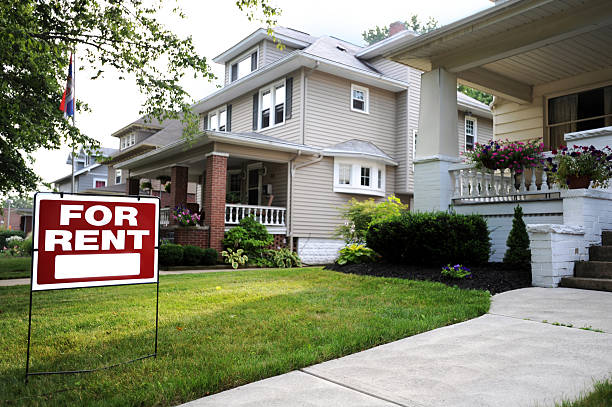
If you are planning to stay in the UK for the long term or are confident in a certain area, buying a house or apartment in the UK can be a viable option, especially given the record low mortgage rates in recent years.
However, renting in the UK may be the best choice for foreigners intending to stay for just a few years; in the short term, it can be harder to recover stamp duty and other expenses, as well as a potential capital gains tax of 18-28% if you’re selling. Renting also allows first-timers to get to know different areas and be able to make a quick offer.
There has been uncertainty in the UK property market, although the average price of a UK home has remained fairly stable and is currently around £228,000. UK house prices are higher than anywhere else in the EU; the average cost per square meter is 23.93 euros.
This is almost double that of the next highest figure, which is France (12.80 euros). Prices in London are higher than in other major cities, currently averaging £473,822 (£912,343 for a detached house, £411,950 for an apartment). Average total costs for other major cities include: Manchester £193,415; Edinburgh £292,644; Cardiff £250,618; and Belfast £159,562.
How to find property in the UK?
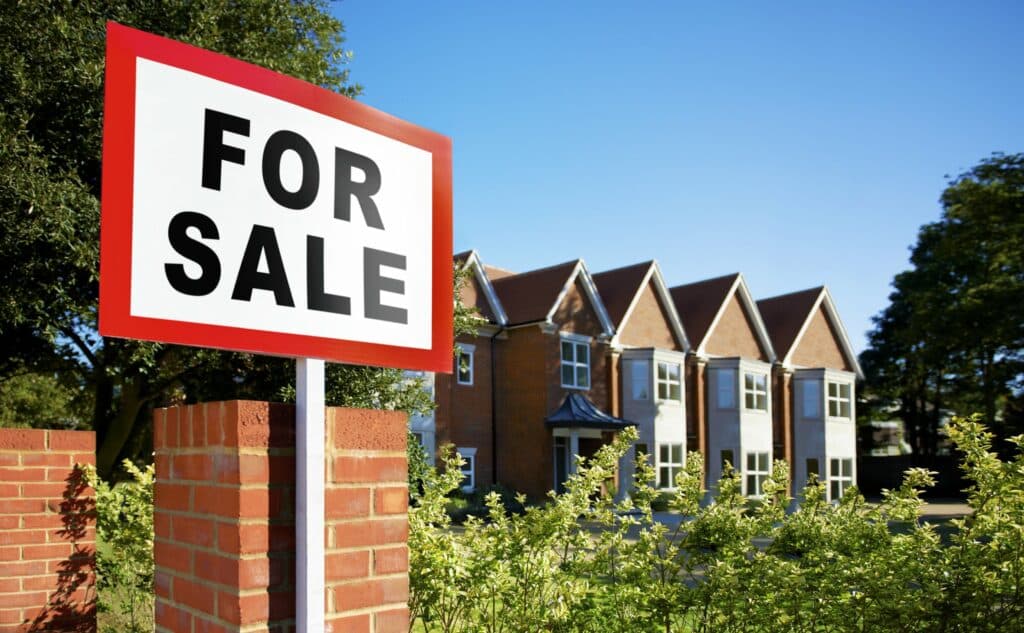
Homes for sale in the UK are most often advertised by real estate agents and their websites, online real estate websites, and newspaper ads. You can also find properties for sale at real estate auctions and scout specific areas by looking for “For Sale” signs outside the property and contacting the real estate agent that lists the home. Regardless of how you find the listing, it usually contains the contact details of the private seller or their real estate agent.
By searching the internet, you will find many real estate websites listing properties in the UK for sale.
As real estate agents are commonly known in the UK, are a common method of finding accommodation. They tailor their searches to suit your requirements, have extensive local knowledge, and tend to have a wider range of listings. They can also arrange viewings on your behalf and assist with price negotiations and purchase procedures.
When you buy a house in the UK through a real estate agent, it is important to ask what their services include. Many UK real estate agents offer legal and mortgage arrangements which can make the process quicker and less hassle, but you can also look for professionals that are right for your circumstances and budget. Real estate agents’ fees are usually charged to the seller, so you don’t have to pay them for general services if you buy, although some may charge for additional services.
There is a wide range of real estate agents throughout the country for you to choose from. Most of them are local agencies that operate in specific areas and regions, so you may need to do your own research when it comes to finding the right real estate agent for you.
You can view either directly with the seller or through a real estate agent. This will be by appointment and if with an agent, you will usually have to meet them either at the property address or at the agent’s office. To get the most out of your viewing, make a list of things to check and questions to ask. You can view a property multiple times and it makes sense to view it at least twice; It is best to walk at different times of the day (day and night).
Some real estate agents offer online remote viewings, which is useful for those who are abroad or have a busy schedule. However, they won’t give you the depth of information about a property that a personal visit would. If you are unable to attend the screening in person, ask a friend or colleague to watch the film on your behalf.
The process of buying a house in the UK usually takes 2-3 months. This may be longer if you are part of a chain of buyers and sellers waiting to buy or sell another property.
Before you start looking for a home, you should evaluate your finances so you know what you can afford, whether it be a mortgage or home equity. It will also prevent unnecessary delays after your offer is accepted or if you need to take a quick step to secure your ideal home. These are the key steps to follow once you have found the property you want to buy in the UK.
Is now a good time to buy a house?
If you’re looking to buy a home now, there’s no denying that buying a home is more expensive than it was before the pandemic.
House prices have risen so much in 2021 that the rise has wiped out all the savings many people have made using stamp duty holidays.
Mortgage rates are still low despite the fact that the Bank of England raised interest rates in February from 0.25% to 0.50%, although they are likely to start creeping up.
Over time, rising rates could hit the housing market, causing it to:
- More expensive to borrow money
- Harder to find cheap mortgages
- If there are fewer cheap loans available, demand for homes could decrease, causing prices to slow down.
Pained by financial indecision? Want to invest with Adam?
Adam is an internationally recognised author on financial matters, with over 376.1 million answers views on Quora.com and a widely sold book on Amazon



